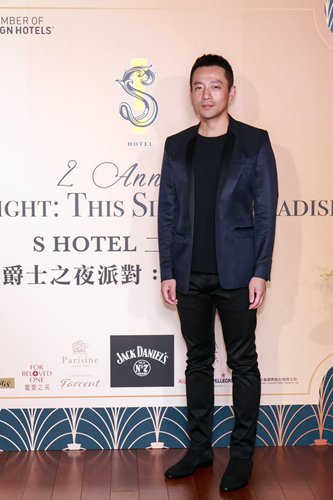HOME >> CHINA
Mainland entrepreneur experiences rise of China’s reputation on global stage
By Zhang Ni Source:Global Times Published: 2019/9/26 20:17:09

Wang Xiaofei Photo: Courtesy of Wang Xiaofei
Celebrity businessman Wang Xiaofei, 38, a Chinese mainland entrepreneur married to Taiwan-born actress-singer Barbie Hsu Hsi-yuan, has witnessed how China's reputation has gradually improved overseas over the past decades.
As someone who studied overseas in the early 1990s, Wang's long experience abroad has deepened his understanding and affection for his motherland. "The longer I stay abroad, the more I find that foreigners are biased against China. They know little about China and often ask me questions that seem ignorant," Wang told the Global Times.
"Western countries generally have a negative impression of China, because our national conditions are different from theirs, and the media often reports on China through a biased lens," he said.
Wang shared an embarrassing experience during his overseas years that truly hurt his sense of national pride. In January 1999, he transferred at Frankfurt airport during a flight from Beijing to Paris. But as soon as he arrived, he was detained by German immigration officials, who claimed there was something wrong with his passport. The German police mistakenly held him for holding a false passport.
"I asked them, 'aren't you Western countries most concerned about human rights? Why do you illegally detain me?' I was barely 17 at the time, and they used verbal insults to shut me up. I was detained in a cabin, a narrow and closed space with a sponge wrapped around the walls, like an airport prison. At that time, I really felt like a homeless man in a movie, with no way out," he said.
In contrast, he saw how well Americans and Japanese were treated by the Germans at the same airport.
"One American lost his passport and the local police were very enthusiastic in trying to get him a replacement. And they are also nice to the Japanese, especially when they were shopping at the duty-free. The German storekeepers were very attentive to the Japanese customers. I was wondering why the Chinese were treated so coldly and l was locked up at the airport for no reason."
New understanding
Now with its rapid economic growth and stronger state power, and with more Chinese people being able to study, visit, and shop abroad, people from Western countries are starting to develop a more objective understanding of China, Wang suggests.
"In 2005, I went to France again and invited the most well-known French designer to come to Beijing to design a project for me. This was something I could not have imagined when I was studying abroad, but I did it in 2005, only 10 years later. I felt that China's rapid change has helped many of our dreams come true," said him.
"During my trip to Paris that year, it was clear to me that China's economy was rapidly rising, which was reflected in the strong purchasing power of many Chinese people going abroad. Besides shopping, they also went to museums and other places, demonstrating the improvement in their living standards and richer spiritual lives."
He thinks the best way to be patriotic is to improve one's personal actions, as one's words and deeds serve as a window for foreigners to know about China.
Since marrying Barbie Hsu, Wang has had to make a weekly round trip between Taipei and Beijing, and the couple feels lucky to have a convenient three-hour direct flight available to them now, and to be living in an era of closer cross-Straits communication.
"But in the early years, people in Taiwan were still prejudiced against mainlanders. When they learned that Hsu, a well-known Taiwan-born actress, had married a mainlander, they found it hard to accept. But 10 years later, we still stick to each other with love and happiness, which goes against many of the prejudices against mainland husbands. The process of their acceptance to me mirrors the process of their understanding of mainlanders," he told the Global Times.
When they got married, he said, it was rare for young people from either sides of the Taiwan Straits to get married. But now, especially in recent years, more and more young people on both sides are getting married because of increasing exchanges. "This makes me feel relieved," he said.
Speaking of the changes in cross-Straits relations, Wang believes that many industries on the two sides of the Straits are now highly complementary, and have great potential for cooperation.
"I remember that two years ago when I attended the Straits Forum, Wang Yang, [China's top political advisor,] introduced the idea of Minzu Dayi (righteous cause for ethnic Chinese). I think it's a very good term that says each of us has an obligation and responsibility to contribute as Chinese."
Ni Hao contributed to the story.
Newspaper headline: Patriotic pride
Posted in: IN-DEPTH